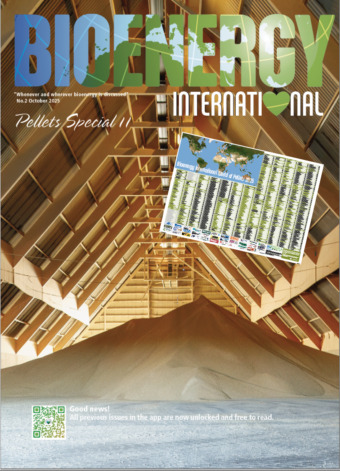In its Special Report on Global Warming of 1.5°C, the Intergovernmental Panel on Climate Change (IPCC) recently called for “rapid and far-reaching transitions” in all sectors in order to achieve net-zero greenhouse gases (GHG) emissions by 2050. In light of this call, Bioenergy Europe, leading trade association for European bioenergy, welcomes two important steps taken into the right direction by the newly adopted REDII.
On November 13, the European Parliament voted in favour of the adoption of the Renewable Energy Directive (REDII), the main EU legal act establishing an overall policy for the production and promotion of energy from renewable sources in the EU. What seems to be the last step of a long process is in fact only a first step towards the 2050 climate and energy framework says Bioenergy Europe.
In its Special Report on Global Warming of 1.5°C, the Intergovernmental Panel on Climate Change (IPCC) recently called for “rapid and far-reaching transitions” in all sectors in order to achieve net-zero greenhouse gases (GHG) emissions by 2050. Often overlooked, but responsible for 50 percent of Europe’s annual energy consumption and still 84 percent dependent from fossil fuels, the heating and cooling sector is given more attention than ever in the adopted REDII. Member States are now compelled to increase their renewable share in the sector.

The REDII provides the first European framework for sustainability criteria, ensuring that bioenergy mitigates environmental risks and achieves high carbon savings. Within this framework, bioenergy will keep an essential role in achieving the energy transition towards 2050.
Bioenergy Europe has been one of the front-runners calling for the introduction of EU sustainability criteria. The sector ensures a steady implementation of the criteria and will continue to show strong commitment towards sustainable biomass production.


